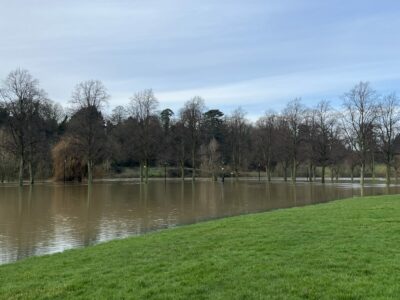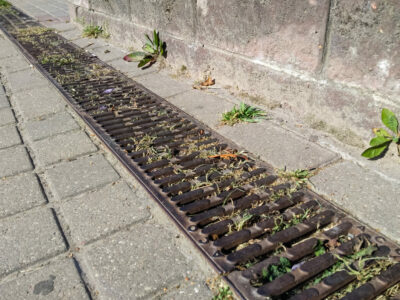House of Lords amend Housing Bill to include sustainable drainage
In its second reading this week, the House of Lords made good its promise to push harder on real reform on flood mitigation for new developments in the Housing Bill.
An amendment to the Bill tabled by Baroness Kate Parminter, Baroness Barbara Young and Lord John Krebs was pushed to a vote and passed. If the amendment stays in the Bill when it returns to the House of Commons, this change to the law will restrict developers’ automatic right to directly connect new houses to existing drainage systems – many of which are already over-loaded – and compel them to integrate low-cost measures known as sustainable drainage systems (SuDS), which compensate for the additional flow that new developments create.
Crucially, the amendment will apply to all sites, regardless of size. Currently, the voluntary regime applies to larger sites of 10 or more units. While new homes are the focus, the wording of the amendment applies to all development, residential or commercial. Implementing SuDS, where appropriate, would be the priority before connection to any other drainage type.
The amendment also has the support of water companies and expert bodies such as the Chartered Institution of Water and Environmental Management (CIWEM), the Institution of Civil Engineers (ICE), the Royal Institute of British Architects (RIBA) and the Wildfowl and Wetlands Trust (WWT).
The Flood and Water Management Act of 2010 made provisions for the use of sustainable drainage systems, and an end to the automatic right to connect new homes to existing sewage networks. However, these provisions were never implemented, and instead a voluntary system asking developers to follow these practices was put in place.
The measure has not been successful in promoting greater flood risk mitigation on new developments and has failed to promote the added benefits of sustainable drainage for water quality, biodiversity and amenity.
Analysis by the Committee on Climate Change’s sub-committee on adaptation found that of 100 planning applications in areas of flood risk, less than 15% were going to incorporate sustainable drainage measures.
Currently developers are able to connect new homes to existing sewage and water networks without having to upgrade them, which puts new houses and nearby existing ones at the threat of overload and flooding, and the unpleasant effects that come from sewage outflows.
The Home Builders Federation, which represents developers, said it was not taking a definitive position on the amendment. In response, a spokesman has said “The industry will continue to engage with all the relevant authorities and water companies to agree surface water drainage strategies for new developments in a way that meets the proposed amendments to surface water requirements.”
The government has promised up to 1 million new homes by 2020, all of which would need to implement SuDS as standard. They oppose the amendment, but a cross-party group of peers mustered enough votes from rebel Tories to defeat ministers.
“We have reached a crossroads in flood management and housing policy now. If the government is serious about tackling flood issues once and for all they should accept the House of Lords amendment and enshrine sustainable drainage systems in law for every new build development.” says Stuart Pearce, Managing Director of GeoSmart.
“This would be a positive step to reconcile our housing crisis with the ongoing effects of climate change. If the Bill is passed, developers, lawyers and other property professionals will need consider site suitability for SuDS as a key part of project feasibility. Developers can be assured that they can access plenty of help and information to deal with the new obligations and to ensure compliance with local authority planning teams, avoid unforeseen costs and delays.”
There is a final reading of the Bill this week before it goes back to the Commons. Expect further pressure to be brought to bear on the Government when it does so.
Download a copy of our free SuDS guide.
Find out more about GeoSmart’s range of SUDS infiltration Suitability Reports.



